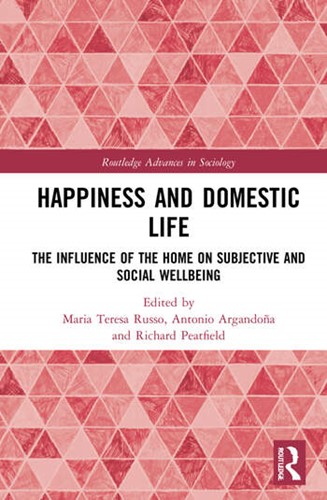Happiness and Domestic Life: The Influence of Home on Subjective and Social Wellbeing examines the relationship between the quality of the domestic environment – in its material and relational dimensions – and perceived levels of individual and societal happiness. These connections are studied from the perspective of various disciplines, within the context of current changes.
Two significant changes, themselves affected by the recent COVID-19 pandemic, frame the consideration of happiness and well-being: the relationship between quality of life and engagement within the community, and the role of new technologies in everyday life. The authors highlight the relational nature of happiness and the centrality of the home environment in its promotion. Three dimensions of psychosocial well-being in the home are analyzed: the personal – consisting of a sense of stability, intimacy and sharing; the social – which considers the domestic environment as a source of civic education (and lately of professional activity); and the physical – in terms of space, style, and function.
Several of the chapters emerged from the 2020 online experts meeting Happy Homes, Happy Society? The Contribution of Domestic Life in a Time of Social Changes.
The volume, published within the Routledge Advances in Sociology series, is comprised of 13 chapters divided among four broad focus areas: Domestic Happiness between the public and Private Spheres; Technology, Domestication and Well-being in the Home; Home Life, Family Relationships and New Ways of Working; and Happy Dwelling? Criticalities and Opportunities of Changes in Urban Living. As chairmen of the institutions responsible for the initiative, Bryan K. Sanderson of the Home Renaissance Foundation, and Carlos Cavallé of the Social Trends Institute contribute forewords. Lord Richard Layard authors the preface, and co-editor María Teresa Russo the introduction.
The book is available in hardcover and ebook versions from Routledge.
